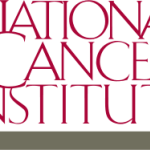- Industry: Government; Health care
- Number of terms: 6957
- Number of blossaries: 0
- Company Profile:
The National Cancer Institute (NCI) is part of the National Institutes of Health (NIH), which is one of 11 agencies that compose the Department of Health and Human Services (HHS). The NCI, established under the National Cancer Institute Act of 1937, is the Federal Government's principal agency for ...
A cell-based cancer vaccine composed of autologous, irradiated dendritic cells (DCs) pulsed with ovarian tumor cell lysate containing tumor-associated antigens (TAAs) with potential immunostimulatory and antineoplastic activities. Upon administration, autologous ovarian tumor cell lysate-pulsed dendritic cell vaccine may stimulate an anti-tumoral cytotoxic T-lymphocyte (CTL) response against ovarian tumor cells expressing the patients ovarian tumor cell-specific TAAs, which may result in ovarian tumor cell lysis.
Industry:Pharmaceutical
A cell-based cancer vaccine composed of autologous dendritic cells (DCs) pulsed with the prostate-specific tumor associated antigens (TAAs) prostate specific antigen (PSA) and prostate acid phosphatase (PAP), and conjugated to the immunostimulant keyhole limpet hemocyanin (KLH), with potential immunostimulatory and antineoplastic activities. Upon administration, prostate cancer antigen/KLH-pulsed autologous dendritic cell vaccine may stimulate the immune system to mount anti-tumoral cytotoxic T lymphocyte (CTL) and antibody responses against prostate cancer cells expressing PSA and PAP, which may result in prostate cancer cell lysis. KLH is an immunogenic carrier and serves as an immunostimulant to improve antigenic immune recognition and T-cell responses and can be used to evaluate vaccine efficacy.
Industry:Pharmaceutical
A cell-based cancer vaccine composed of autologous dendritic cells (DCs) pulsed with lysate from autologous lymphoma cells with potential immunostimulatory and antineoplastic activities. Upon intranodal administration, autologous lymphoma cell lysate-pulsed autologous DC vaccine may stimulate the immune system to mount anti-tumoral cytotoxic T lymphocyte (CTL) and antibody responses against lymphoma cells, which may result in lymphoma cell lysis.
Industry:Pharmaceutical
A cell-based cancer vaccine composed of autologous dendritic cells (DCs) pulsed with synthetic brain tumor peptides with potential immunostimulatory and antineoplastic activities. Upon administration, synthetic brain tumor peptides-pulsed autologous dendritic cell vaccine may stimulate anti-tumoral cytotoxic T lymphocyte (CTL)l and antibody responses against glioma tumor cells, resulting in glioma tumor cell lysis.
Industry:Pharmaceutical
A cell-based cancer vaccine composed of autologous dendritic cells (DCs) pulsed with renal cell carcinoma (RCC) tumor cell lysate containing tumor associated antigens (TAAs) with potential immunostimulatory and antineoplastic activities. Upon administration, autologous renal cell carcinoma tumor lysate-dendritic cell vaccine may stimulate anti-tumoral cytotoxic T-lymphocyte (CTL) and antibody responses against RCC tumor cells expressing RCC TAAs, resulting in RCC tumor cell lysis.
Industry:Pharmaceutical
A cell-based cancer vaccine composed of autologous dendritic cells (DCs) pulsed with lysates from malignant glioma cells with potential immunostimulatory and antineoplastic activities. Upon administration, malignant glioma tumor lysate-pulsed autologous dendritic cell vaccine exposes the immune system to undefined malignant glioma tumor-associated antigens (TAAs), which may result in anti-tumoral cytotoxic T lymphocyte (CTL) and antibody responses against glioma cells and glioma cell lysis.
Industry:Pharmaceutical
A cell-based cancer vaccine composed of autologous dendritic cells (DCs) pulsed with lysate from autologous melanoma cells containing tumor associated antigens (TAAs) with potential immunostimulatory and antineoplastic activities. Upon administration, autologous melanoma lysate-pulsed autologous DC vaccine may stimulate the immune system to mount anti-tumoral cytotoxic T lymphocyte (CTL) and antibody responses against melanoma cells, which may result in melanoma cell lysis.
Industry:Pharmaceutical
A cell-based cancer vaccine composed of autologous dendritic cells (DCs) pulsed with lysate from autologous melanoma cells containing tumor associated antigens (TAAs) and conjugated to the immunostimulant Keyhole limpet hemocyanin (KLH), with potential immunostimulatory and antineoplastic activities. Upon administration, autologous melanoma lysate/KLH-pulsed autologous dendritic cell vaccine may stimulate the immune system to mount anti-tumoral cytotoxic T lymphocyte (CTL) and antibody responses against melanoma cells, which may result in melanoma cell lysis. KLH is an immunogenic carrier and serves as an immunostimulant to improve antigenic immune recognition and T-cell responses and can be used to evaluate vaccine efficacy.
Industry:Pharmaceutical
A cell-based cancer vaccine composed of autologous dendritic cells (DCs) pulsed with human leukocyte antigen (HLA)-A1-binding melanoma-associated antigen peptides MAGE-1 and MAGE-3 with potential immunomodulating and antineoplastic activity. Upon vaccination, HLA-A1-binding MAGE-1/MAGE-3 multipeptide-pulsed autologous dendritic cell vaccine may stimulate the host immune system to mount an anti-tumoral cytotoxic T lymphocyte (CTL) and antibody responses against MAGE1- and MAGE-3-expressing cancer cells, resulting in tumor cell lysis. HLA-A1 is an MHC class I molecule that presents antigenic peptides to CD8+ T cells; epitope design restricted to epitopes that bind most efficiently to HLA-A1 may improve antigenic peptide immunogenicity.
Industry:Pharmaceutical
A cell-based cancer vaccine composed of autologous dendritic cells (DCs) pulsed with human leukocyte antigen (HLA)-A2-restricted melanoma-associated antigen peptides tyrosinase (TYR), MART-1(melanoma antigen recognized by T-cells) and melanoma antigen glycoprotein 100 (gp100), with potential immunomodulating and antineoplastic activity. Upon vaccination, HLA-A2-binding TYR/MART-1/gp100 multipeptide-pulsed autologous dendritic cell vaccine may stimulate the host immune system to mount an anti-tumoral cytotoxic T lymphocyte (CTL) and antibody responses against Tyr-, MART-1 and gp100-expressing cancer cells, resulting in tumor cell lysis. HLA-A2 is an MHC class I molecule that presents antigenic peptides to CD8+ T cells; epitope design restricted to epitopes that bind most efficiently to HLA-A2 may improve antigenic peptide immunogenicity.
Industry:Pharmaceutical
